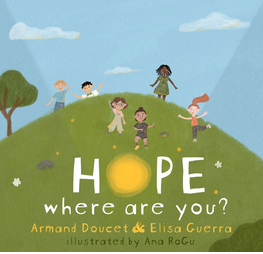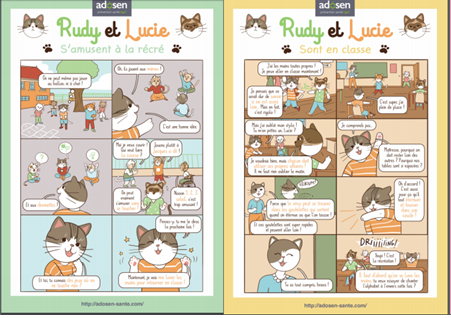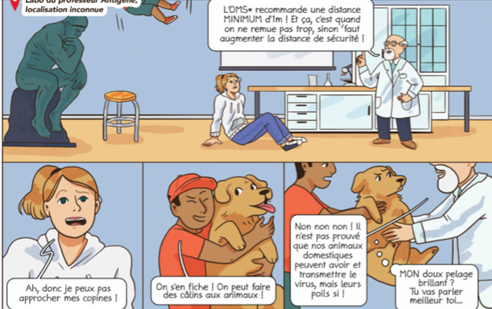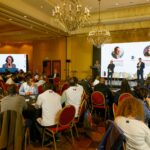After several weeks of closure as a Coronavirus prevention measure, governments are gradually allowing schools to take in their students again.
All over the world reopening schools is inducing a great deal of anxiety about the ever-present disease and many questions about the post-lockdown period for the entire educational community. While some arrangements have been put in place by administrations to ensure that this return takes place in the best possible health conditions, maintaining the health and well-being of young people and education staff must also be a priority. So, how can we teach while respecting protective measures? What is the best way to discuss sensitive topics related to the coronavirus crisis with students? How can we make it easier for young people to have their say?
Some examples of approaches and tools developed by ESN members to support educators in this task.
After several weeks of closure as a Coronavirus prevention measure, governments are gradually allowing schools to take in their students again.
All over the world reopening schools is inducing a great deal of anxiety about the ever-present disease and many questions about the post-lockdown period for the entire educational community. While some arrangements have been put in place by administrations to ensure that this return takes place in the best possible health conditions, maintaining the health and well-being of young people and education staff must also be a priority. So, how can we teach while respecting protective measures? What is the best way to discuss sensitive topics related to the coronavirus crisis with students? How can we make it easier for young people to have their say?
Some examples of approaches and tools developed by ESN members to support educators in this task.
The crisis and life post-lockdown: social and emotional support for adults and young people
To help prepare for the unusual start of the new school year for the schools that are ready to reopen, the Latitude Jeunes teams have put some “tools for lifting lockdown” online on their website. The crisis has been an upheaval and a cause of anxiety for all, and because quality education depends first and foremost on the physical and mental health of the educational body, the association invites educators to begin the process with a self-diagnosis. Should we talk about the crisis? Or not talk about the crisis? Using a arbre décisionnel, teachers and other supervisors can determine their emotional and psychological capacity to address the consequences of crisis and lockdown with their students. Do uncertainties remain? Latitudes Jeunes then proposes a questionnaire to dig a little deeper and be able to clearly identify your own feelings.
At the end of this stage, if educators choose to work on these issues with young people, a set of tools is made available to them. You can find all the information on the plateforme de Latitude Jeunes.
Education International has also been providing access to resources and advice on how to cope with this new phase of the pandemic. For example, it suggests that parents and teachers try to adopt an optimistic stance in reflecting on the crisis with the youngest children in alongside the book “Hope where are you ?”. In this story, the characters are children who have to face the challenges caused by the closure of schools in the context of Covid. To do this, they decide to focus on the positive, and to share their hope with other children living in the 4 corners of the world. A tool which, according to authors Armand Doucet and Elisa Guerra, highlights the importance of mutual aid in this common global experience. It also aims to help children put current events into perspective so that they can more easily express how they feel.
In order to spread this momentum, the #hopewhereareyou campaign will be launched on social media. The book will also be available free of charge to all, but people will also be able to purchase a printed version, the funds from which will contribute to UNICEF’s Covid reponse.
Details of this initiative can be found on IE’s website.
School in the time of Covid: supporting students with the changes
Another priority is to shed light on protective measures for students. With his comic strips, Adosen suggests combining work and play by leading workshops for class discussions using playful tools.
Aimed at primary school pupils, “Rudy and Lucie” is about schoolchildren who enthusiastically get together with their teachers and classmates. But in order for this reunion to take place in the best possible conditions, they make sure to protect themselves and others by strictly adhering to protective measures.
The comic “Not too young to understand” is aimed at secondary school students. The objective? To help young people understand the different aspects of this new reality that we will have to live with for some time to come. It therefore invites them, through the characters of Alex and Noa, to reflect on the reasons for and repercussions of social distancing measures in our daily lives.
The adventures can be discovered on Adosen’s website and social media.







